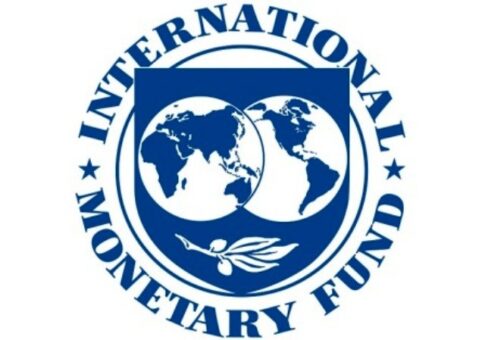Islamabad, April 16, 2024 – The International Monetary Fund (IMF) has released its latest report, projecting a two per cent GDP growth rate for Pakistan in the current fiscal year FY24, a significant improvement from the -0.2 per cent recorded in FY23.
The report, titled “World Economic Outlook (WEO): Steady but Slow: Resilience amid Divergence,” also forecasts a decline in inflation and unemployment rates for the country.
According to the IMF report, Pakistan’s GDP is expected to grow by 3.5 per cent in the fiscal year 2025, indicating a positive trend in the country’s economic performance over the coming years. The inflation rate is projected to decrease from 29.2 per cent to 24.8 per cent in FY24 and further decline to 12.7 per cent in FY25. Similarly, unemployment rates are expected to decrease from 8.5 per cent in FY23 to eight per cent in FY24 and further to 7.5 per cent in FY25.
However, the current account balance is estimated to remain negative, standing at -1.1 per cent for FY24 compared to -0.7 per cent in FY23, with a further decline to -1.2 per cent projected for FY25.
The IMF’s baseline forecast for the global economy predicts a growth rate of 3.2 per cent during 2024 and 2025, maintaining the same pace as in 2023. While advanced economies are expected to experience a slight acceleration in growth, from 1.6 per cent in 2023 to 1.8 per cent in 2025, emerging market and developing economies are likely to see a modest slowdown from 4.3 per cent in 2023 to 4.2 per cent in both 2024 and 2025.
Global inflation is forecasted to decline steadily, from 6.8 per cent in 2023 to 4.5 per cent in 2025, with advanced economies returning to their inflation targets sooner than emerging markets and developing economies.
The report highlights the surprising resilience of economic activity during the global disinflation of 2022–23. Despite concerns of stagflation and global recession, growth in employment and incomes remained steady, supported by government spending and household consumption. The IMF attributes this resilience to factors such as increased labour force participation and households’ ability to draw on savings accumulated during the pandemic.
Looking ahead, as inflation approaches target levels and central banks adjust their policies, the IMF anticipates a tightening of fiscal policies aimed at reducing high government debt, which could potentially weigh on economic growth.
Overall, the IMF’s projections indicate cautious optimism for Pakistan’s economy, with positive growth expected in the near future. However, challenges such as the current account deficit and inflation remain areas of concern that will require continued attention and policy adjustments from authorities.
